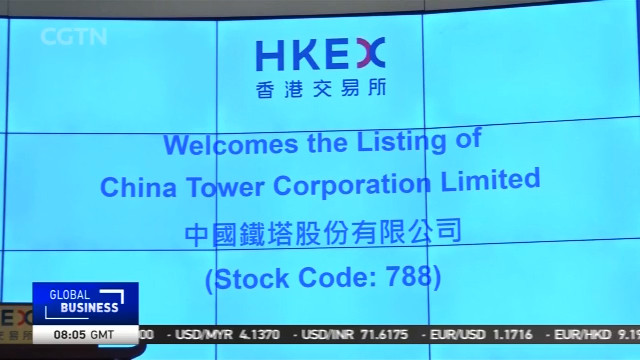
17:24, 14-Sep-2018
Hong Kong Market: Foreign investors buying Chinese stocks and bonds
Updated
16:55, 17-Sep-2018
03:31

The trade war and a slowing Chinese economy have prompted big falls in Greater China stocks - but foreigners and mainland investors seem to have reacted differently. Record amounts of cash have flooded in through the stock connect programmes between Hong Kong and Shanghai and Shenzhen, and offshore holdings of Chinese government bonds are also now at record highs. CGTN's Joel Flynn has more.
There's something missing in Hong Kong at the moment and it's got investors worried. The bullish sentiment that drove the Hang Seng to an all-time high earlier this year has flooded out of the local market. It's been replaced, it seems, by fear about tariffs and interest rates. Stocks here are down by almost a quarter since January. But the flow of funds out of Hong Kong's equity markets has more to do with mainland money than with foreign investment.
JOEL FLYNN CGTN REPORTER "The trade war and a slowing Chinese economy have prompted big falls in Greater China stocks, but foreign and mainland investors seem to have reacted differently. And the proof of that is in Hong Kong's stock connect programs."
Foreigners have been finding value in Chinese equities that currently look cheap compared to US ones. Record amounts of cash have flooded in through the stock connect programmes between Hong Kong and Shanghai and Shenzhen.
GEOFF LEWIS, SENIOR STRATEGIST MANULIFE ASSET MANAGEMENT "I think we saw very strong inflows, and then those have reversed. It's not surprising I think that they have reversed, that we've seen a cooling off, given what we're seeing in global markets, and given what is obviously a depressed level of sentiment amongst domestic equity investors in China."
Part of the reason for that is the inclusion of Chinese A-shares in MSCI's emerging markets index. Passive money tracking the index has allocated some $125 billion in global assets into 234 mainland stocks. The problems that some have pointed to though is the access that Chinese investors have to foreign assets. Part of the blame for that is being laid at the feet of Chinese authorities.
ANDREW FRERIS, CEO ECOGNOSIS ADVISORY "One of the reasons was they were concerned about exports of capital, which I'm afraid I really don't buy, because you can't on one hand encourage south-north, north-south flows, and on the other hand say 'No, you cannot export your money'. It's very messy."
That thinking was behind the shelving of Chinese depository receipts. Hong Kong meanwhile continues to see Chinese firms like China Tower lining up for IPOs. Meanwhile, offshore holdings of Chinese government bonds are also now at record highs. Investors outside of the mainland now hold more than 1 trillion yuan in Chinese debt, a number that's been growing for the past 18 months.
GEOFF LEWIS, SENIOR STRATEGIST MANULIFE ASSET MANAGEMENT "I think you're going to continue to see inflows into this market, the foreign share is around about 3 percent, that's still very, very low, and China is committed to deepening and improving its domestic capital markets, including the bond markets. That doesn't mean to say there's no risk."
This, though, is the minutiae that overlooks the elephant in the room. With the spectre of additional tariffs looming over Hong Kong and Chinese mainland markets, the question of value in equities or bonds may yet be premature.

SITEMAP
Copyright © 2018 CGTN. Beijing ICP prepared NO.16065310-3
Copyright © 2018 CGTN. Beijing ICP prepared NO.16065310-3